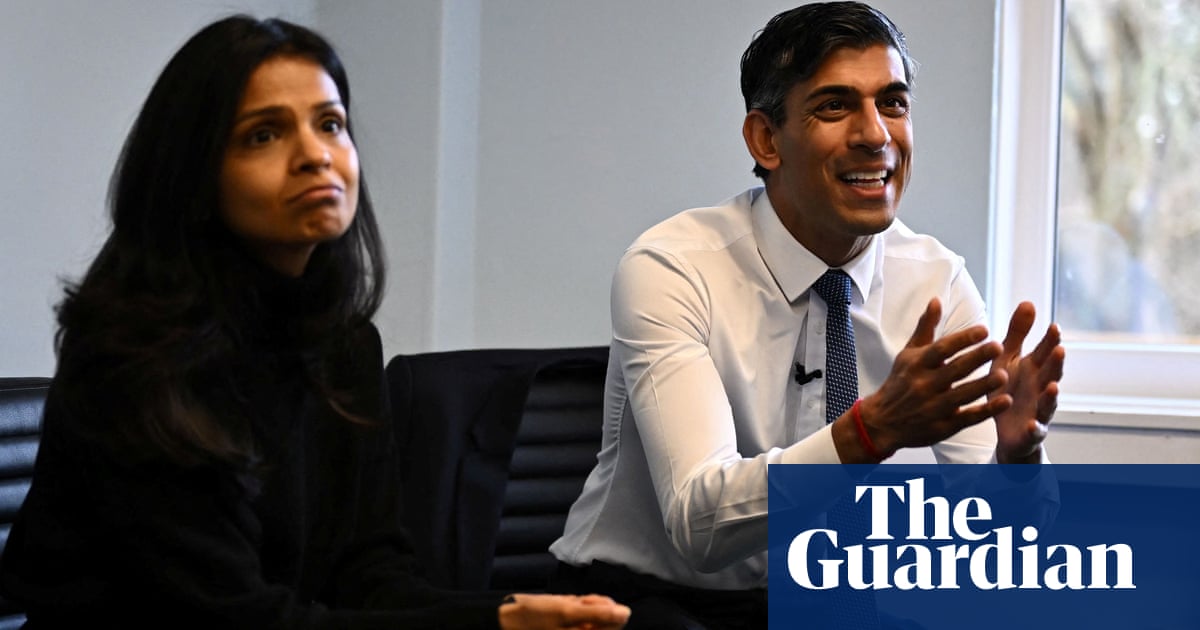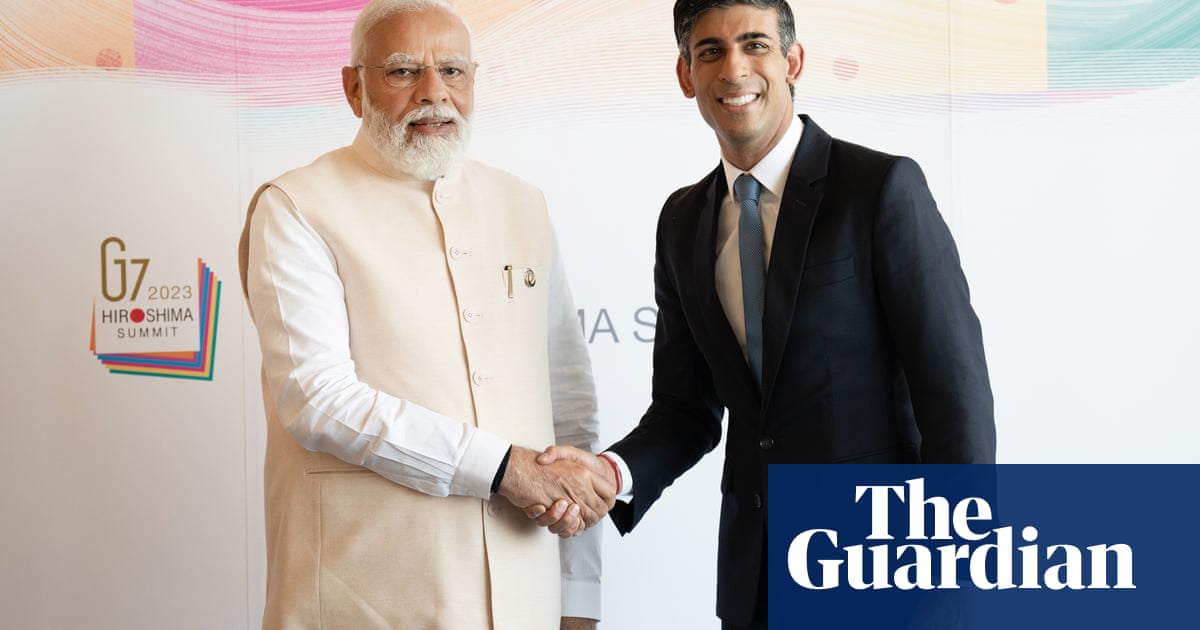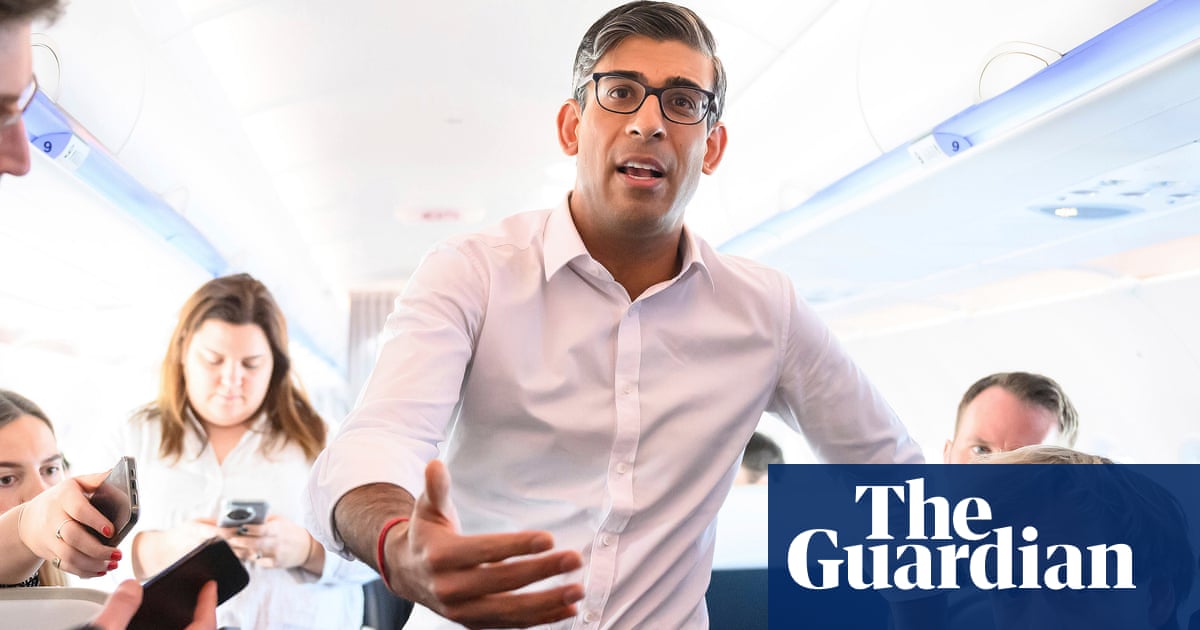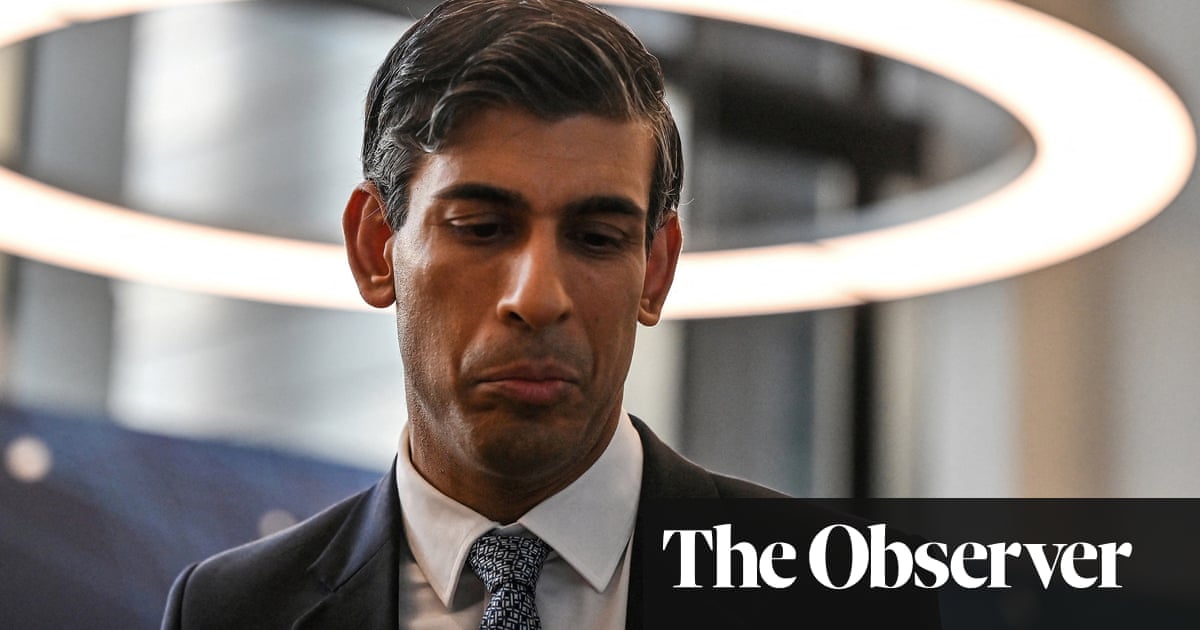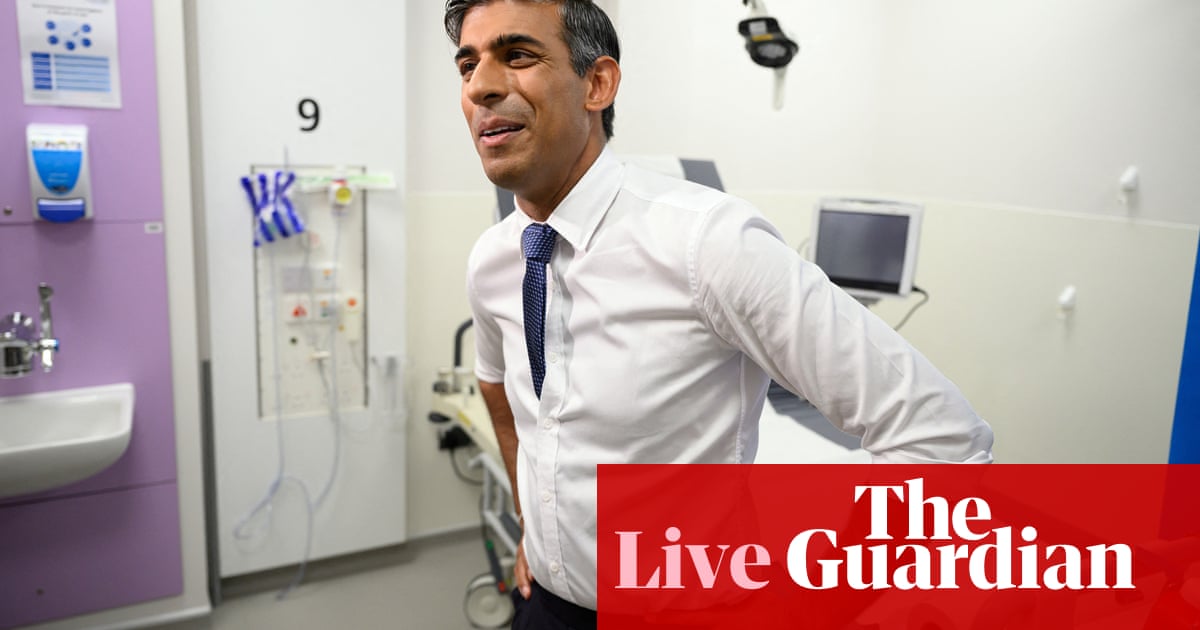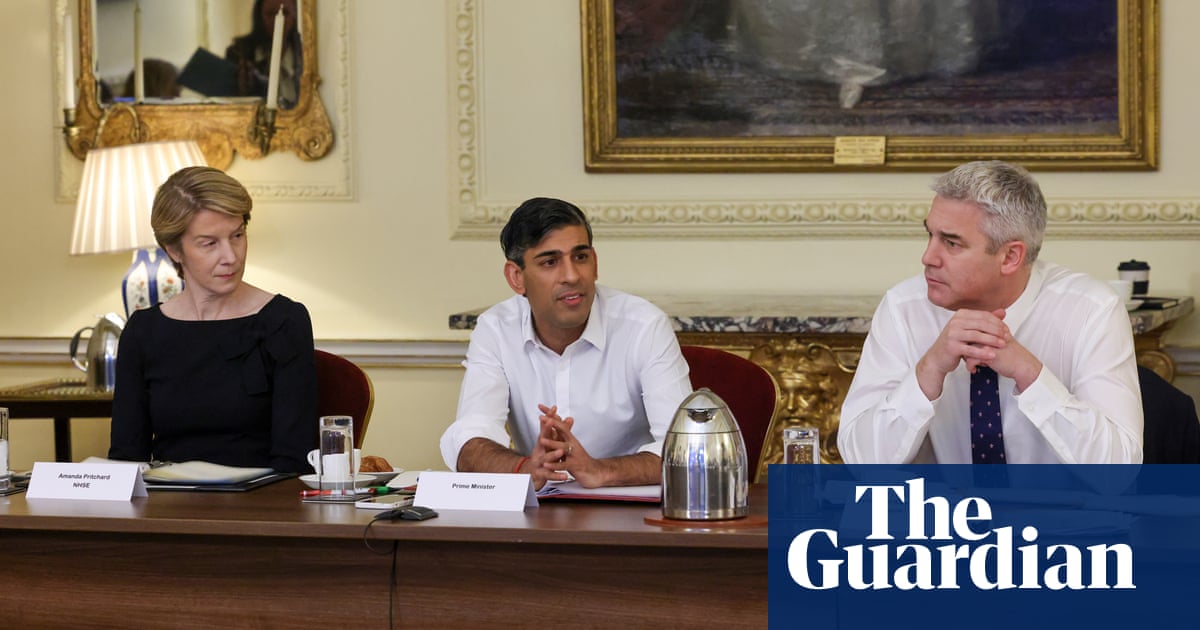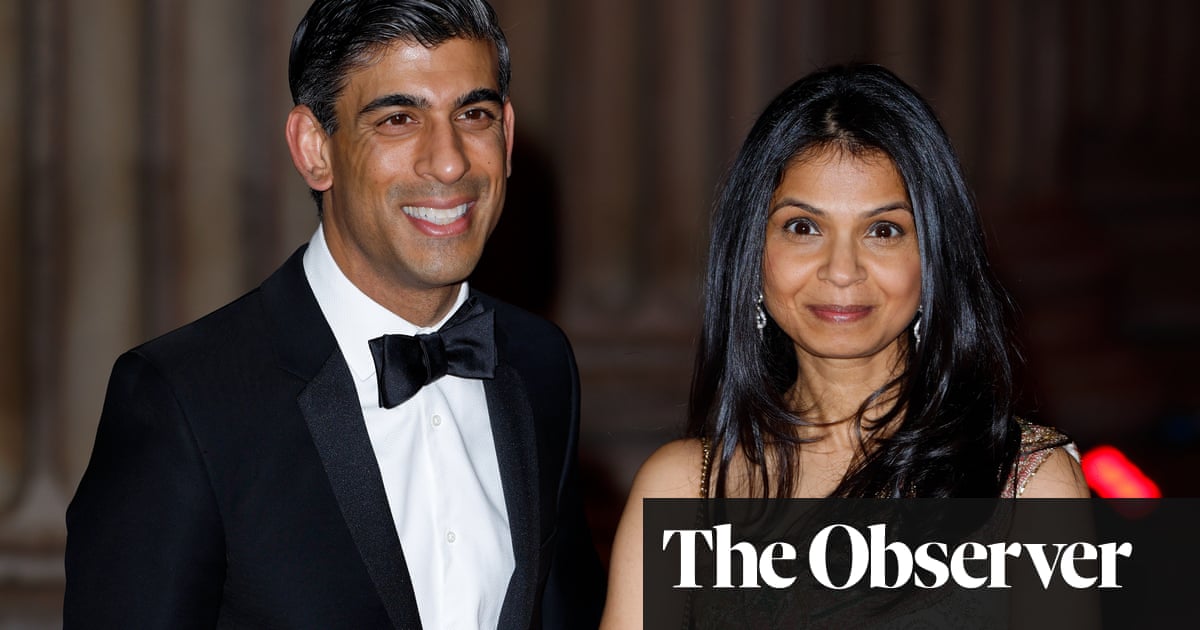
Rishi Sunak faces a new conflict of interest row before a G20 summit in New Delhi next month over claims that his family could stand to benefit financially from a post-Brexit trade deal that he is negotiating with India.
MPs and trade experts say there are concerns at the highest levels of government over potential “transparency” issues relating to his wife Akshata Murty’s shareholding – worth almost £500m – in the massive Bengaluru-based international IT services and consultancy company Infosys.
Labour, and the chair of the all-party House of Commons business and trade select committee, called on Saturday night for Sunak to be more open about his wife’s financial interests, given that Infosys could be a key beneficiary of any agreement. One leading expert said he should recuse himself from the trade negotiations altogether.
Darren Jones, the Labour chair of the business and trade select committee, said: “As the prime minister recently learned, it’s important he declares any interests properly. I expect him to do so in respect of the India trade deal too.”
The calls come as former culture secretary Nadine Dorries, a vocal critic of the prime minister, finally handed in her resignation as an MP.
Sunak will attend the G20 summit in New Delhi in two weeks and is expected to discuss the UK-India trade negotiations in a separate bilateral meeting with India’s prime minister, Narendra Modi.
Trade secretary Kemi Badenoch flew back from India this weekend after holding intensive talks on the prospective deal.
Infosys, which has had contracts with the British government as well as many UK companies, is known to want to improve access to this country for its many thousands of contract workers through changes to the UK visa regime.
Allowing more visas for its workers in sectors such as IT and artificial intelligence is a key Indian demand in the talks over a free-trade agreement. The UK, for its part, is seeking reductions in the high tariffs on exports to India of goods including Scotch whisky and cars.
The Observer can reveal that, such are the sensitivities over the negotiations and Sunak’s involvement, that the Foreign Office (FCDO) has warned Jones’s committee in the strongest terms against conducting a trip to India this autumn to examine issues around a potential deal.
“The committee was advised by the government that it would be better to visit India next year instead of during sensitive trade negotiations,” said Jones.
In addition, the FCDO has indicated to the committee that it will not be able to assist in setting up meetings for the MPs with Indian officials and business people. Amid signs of tension between the MPs and the FCDO, the committee will meet soon after parliament returns next week to discuss whether to go ahead anyway.
The vast majority of Murty and the Sunak’s enormous wealth comes from Infosys, her family’s tech company, which was valued at about $63bn (£50bn) in May.
The company was co-founded by Murty’s father, Narayana Murthy, in 1981. Last year compilers of the Sunday Times rich list estimated that the holding should have produced about £54m in dividends to boost the Sunak family income over the previous seven years.
The latest controversy comes after the prime minister was reprimanded last week by parliament’s standard’s watchdog for failing to properly declare his wife’s separate shareholding in a childcare company that stood to benefit from new government policy. The watchdog said Sunak had breached parliament’s code of conduct but did so inadvertently.
He now includes mention of the childcare company in the register of ministerial interests.
He does not, however, make public his wife’s 0.94% holding in Infosys in the register, though Downing Street insisted on Saturday night that he declares it in the proper way to the relevant authorities, who do not require him to do so.
Speaking to the Observer, Alan Manning, a professor of economics at the London School of Economics, who chaired the migration advisory committee to government from 2016 to 2020 said: “Software services are one of India’s biggest export sectors, and India will be looking for opportunities to grow them in their trade deals, including with the UK.
“Often this means seeking more liberal immigration laws as these businesses are about moving people around the world. Indian IT companies, including Infosys, are already among the biggest users of the UK’s work visa system and will want to expand further. As the prime minister’s family may have a direct financial interest in any deal on immigration, he should recuse himself from this part of the negotiations to avoid any perception of conflict of interest.”
Shadow trade secretary Nick Thomas-Symonds said his party backed a trade deal with India “so it is important that he [the prime minister] is transparent about any relevant business links and his personal role in negotiations”.
A government spokesman said: “The prime minister and trade secretary are pursuing a trade deal with India in the best interests of the United Kingdom – to boost the UK economy, bring investment to the UK and create opportunities for British people.”
“The prime minister’s interests have been declared in accordance with the normal processes.”
Jonathan Portes, professor of economics and public policy at King’s College London, said Infosys, along with other big Indian IT consultancies such as Tata, had long been by far the largest private sector users of the UK work visa system.
“Infosys applied for 2,500 visas in 2019 alone, primarily so that it could bring in its staff to work on large outsourced IT contracts in the UK. This is quite different from other types of skilled immigration, where a UK-based employer hires someone from abroad to move here to fill a vacancy. This is a fundamental part of their business model, and liberalising the visa rules has long been a priority for Infosys and similar companies, who of course have the ear of the Indian government when it comes to trade deals.”
The Indian IT industry says it needs fast, short-term corporate visas for the skilled professionals it needs to work on projects in the UK where there is a shortage of qualified workers.
Last year, after a row about her non-dom (non-domiciled) tax status, Murty agreed to pay UK tax on all her overseas income, but not on backdated income. As a non-domiciled UK resident, she is not required by law to pay UK taxes on her overseas income. Infosys was approach for comment.




